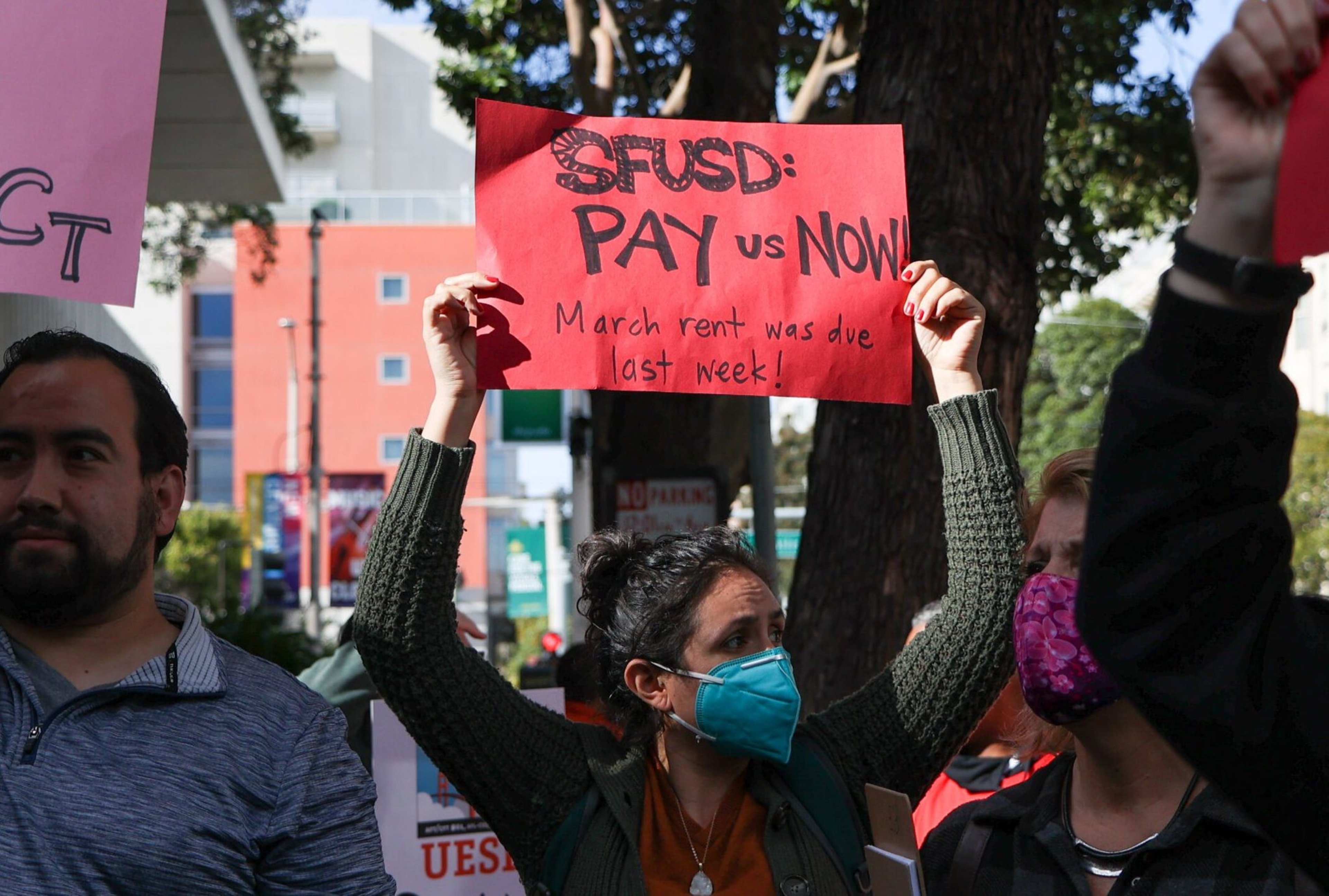Errors with a new payroll system since January boiled down to staffing and planning, officials with the San Francisco Unified School District said in their initial post-mortem.
Switching to a new system caused glitches, including missed pay for more than 1,000 teachers. During a budget committee meeting on Wednesday night, SFUSD leadership presented a report that laid out key findings of what exactly went wrong and how. Beyond the learning curve from switching back to fully in-person teaching, departments and teams weren’t integrated enough.
“We made choices and tradeoffs around how we were going to staff the project,” Melissa Dodd, SFUSD chief technology officer, said at the meeting. “We were all holding pieces of the puzzle and we didn’t have that sort of core…and know what the whole puzzle picture was. It is a reflection of our practices and our culture as an organization.”
SFUSD has been criticized for not properly preparing for the transition to a new payroll system, EMPowerSF. Since its launch in January, thousands of district employees have encountered inaccurate paychecks and dramatically higher tax bills. Some workers have even seen their insurance temporarily cut off. Wait times to rectify these errors have proven long as well.
More workers were caught up in this payroll snafu than previously disclosed. SFUSD received 4,000 tech-help tickets in the first five weeks, 3,300 new tickets in the five weeks after, and 1,800 new tickets since the week of March 2, according to the staff report (opens in new tab).
In tests prior to the launch, SFUSD staff resolved more than 400 defects. The district also said it held over a dozen training sessions for managers and employees.
But it simply wasn’t enough. Dodd acknowledged the report’s findings: insufficient staffing, gaps in documentation from former staff to new staff and incomplete planning and testing for a mid-year launch.
One error involved Deferred Net Pay, which ensures a July paycheck for teachers on summer break by spreading 11 months of income over a full year. Instead, the deferral happened on a six-month cycle. According to Geri Almanza, the treasurer for United Educators of San Francisco, on top of having to borrow money to pay bills from an incorrect paycheck and incurring higher taxes, educators could be hit with a significantly smaller paycheck in July—and may not realize it.
At Wednesday’s fully in-person yet sparsely attended meeting, Almanza said that UESF has seen progress in response times, though some members still have outstanding issues around pay, retirement and insurance—leaving some dedicated teachers ready to leave the district, if not the profession altogether. She is one of the UESF members who slept at the district office during a three-night takeover last month to demand action, netting an agreement to pay interest on late payments and other items.
“It seems like before it was chaotic free for all,” Almanza told The Standard. “I’m glad they seem to understand the scope and they’re creating processes to solve the issue in a more timely manner. They have been underemployed in the payroll department for years, so they obviously were not prepared in staffing to make the switch.”
In the short term, staff reported having strengthened payroll validation, adding capacity to payroll support and cutting checks in between pay periods. What’s left to be done, district staff reported, is to remedy issues with DNP, tax impact, boosting the off-cycle check process, case management, and a deeper analysis by an independent party. Staff and commissioners agreed that learning lessons must be implemented as the district modernizes other operations.
Teachers and school board members have demanded accountability for this fiasco. On Monday, Deputy Superintendent of Policy and Operations Myong Leigh told district leadership he would resign at the end of the school year in June. The SFUSD staffer of 22 years was on the team that led the transition to EMPowerSF, though the district has said his resignation is unrelated. But the issues are unlikely to go away anytime soon.
“This is just the first of many,” said Commissioner Matt Alexander said of the report. “We’ve got to transform our system from top to bottom. The systems are antiquated in many ways.”
